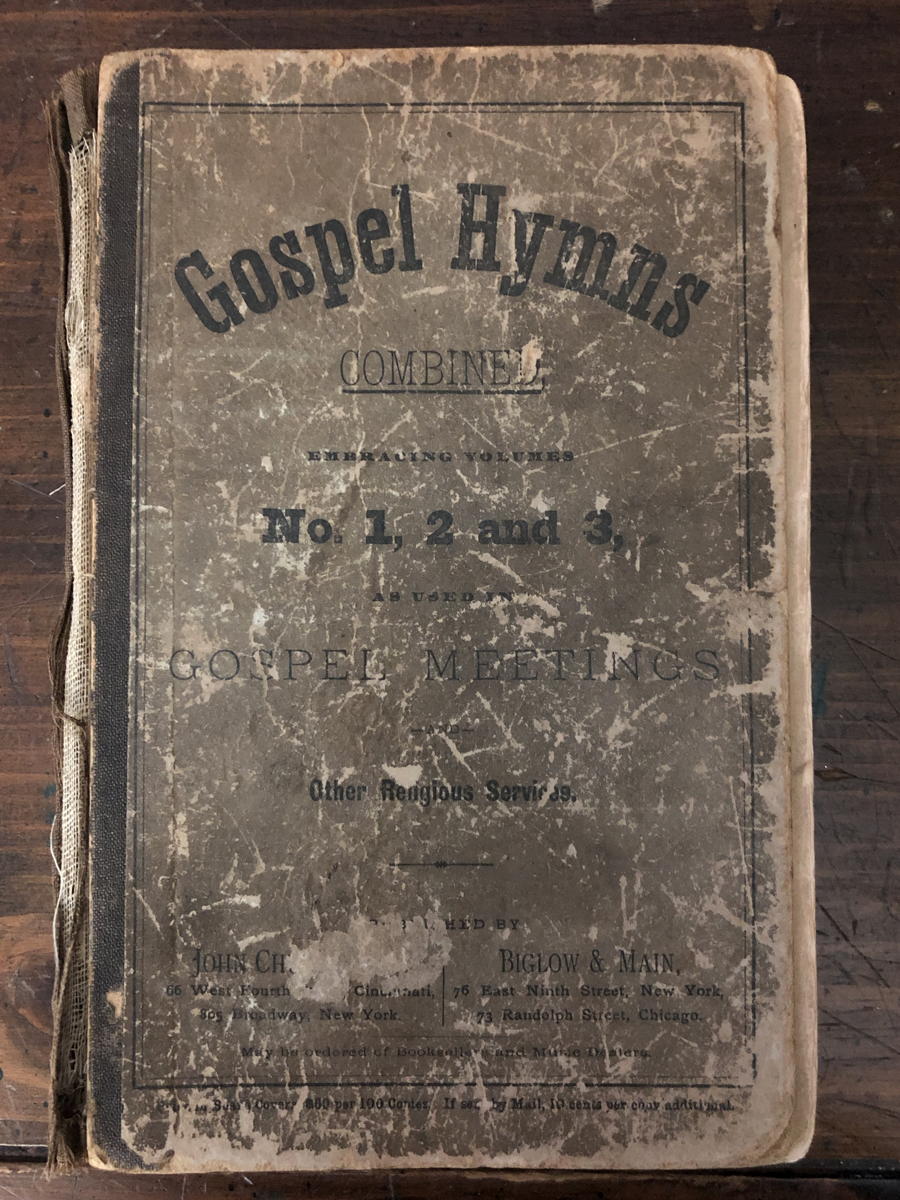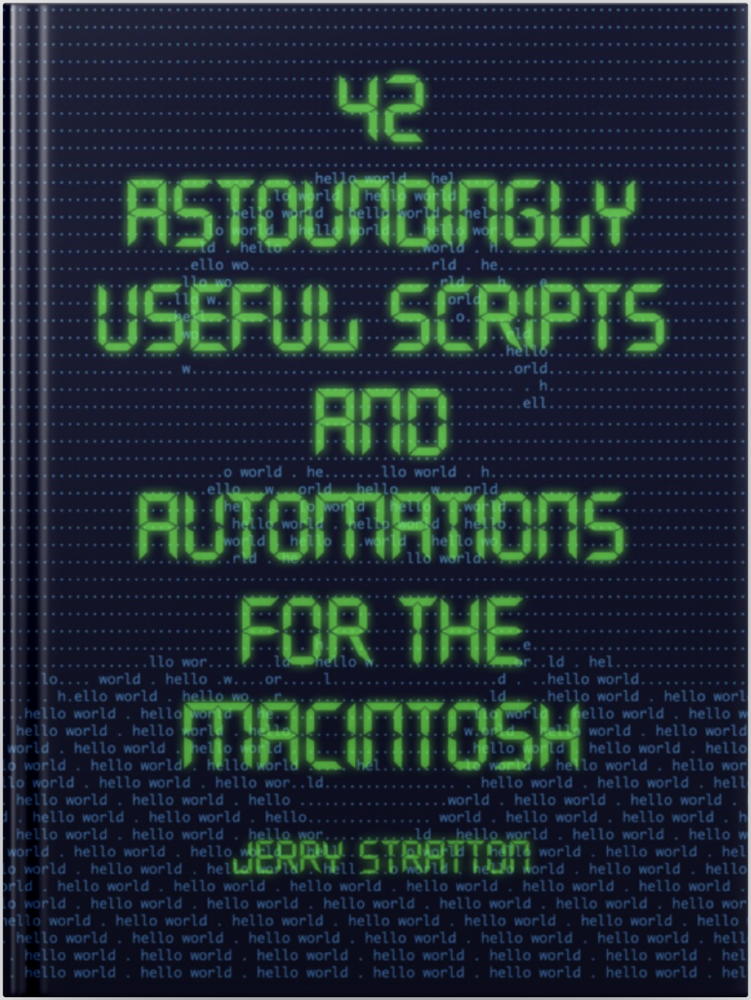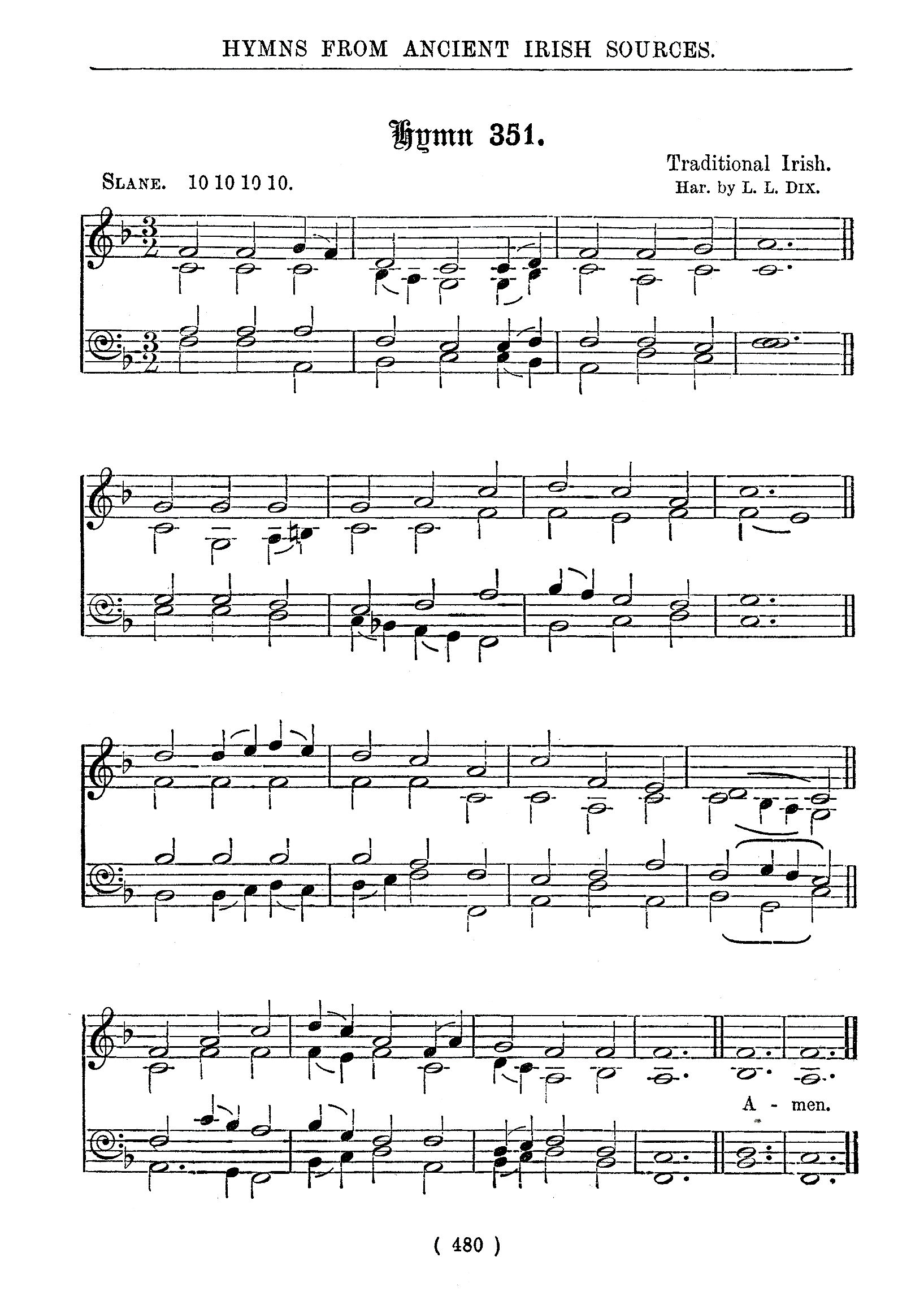A lot of old songs were really poems set to music later. The melodies varied from place to place and person to person. This is a melody to Amazing Grace that I found in an old nineteenth-century hymnal, attributed to C.H. Warwick. It is nothing like the melody we use today and which I used to demonstrate the ‘piano’ script in 42 Astoundingly Useful Scripts and Automations for the Macintosh•. I don’t think it’s just familiarity that makes the familiar melody better; Excell’s melody is unquestionably a more appropriate melody for a hymn, especially a hymn with the history of Amazing Grace. It is a more uplifting yet plaintive melody.
I find it difficult to even imagine using Warwick’s melody for the lyrics to Amazing Grace. It’s light, finger-tripping music. But it’s interesting to hear for its historical value. The Gospel Hymns series I found it in was very popular, which means this melody must have been used at many revivals and services across the United States in the nineteenth century.
# Warwick, C.H., p. 101, Gospel Hymns Combined
# Rev. John Newton/Samuel Stanley
--key D
# line 1
[- F | 8 A F B G 4 F D | 8 D A 4 G F A |
A A 8 A D C B | 2 C 4 R - C]
[- - D | D D D - G | A A D D |
C D E E | 2 A 4 R D ]
[- D | D D D D | + 8 F - D 4 C D D |
+ E F E E | 2 E 4 R - D]
- D + | 8 F B D B 4 A B | 8 A F 4 E - D + F |
A 8 B 16 C D 8 C B A G+ | 2 A 4 R A
# line 2
[- 8 G B B D 4 D A | A A A D |
8 D A A B 4 A A | 2 A R]
[- - D D D D | C A D + F |
G 8 F G 4 A - A | 2 D R]
[- D + G F - D | + E 2 - C 4 D |
8 D + E A G 4 F E | 2 F R]
8 B G D B 4 A F | 8 G E A G 4 F A |
8 B C D E 4 D C | 2 D R
Play it using something like:
- ~/bin/piano "Warwick Amazing Grace.txt"
Or save it to a midi file using:
- ~/bin/piano "Warwick Amazing Grace.txt" --save "Warwick Amazing Grace.midi"
Not having a sense of how the melody is meant to play out with the words, it was harder to choose an instrument in GarageBand for it. At smaller revivals it may well have been sung a cappella.
I decided for no real reason to double it in trumpet and piano. I decided not to break out the treble and bass clefs. As historically interesting as this melody is, it isn’t worth that minimal effort. Feel free to do it yourself, though—or to use the piano script to improve the melody. It’s a great way to play around with melodies, to investigate what works and what doesn’t.
There are fashions in music that go deeper than genre. Listening to these melodies from the 1800s is like listening to a different world.

From the 1800s, and a dime-a-dozen at flea markets and yard sales, this contains a huge number of interesting songs—some interesting for how they’ve changed over more than a hundred years.
- 42 Astoundingly Useful Scripts and Automations for the Macintosh•: Jerry Stratton at Amazon.com (paperback)
-
 If you have a Macintosh and you want to get your retro on, take a look at 42 Astoundingly Useful Scripts and Automations for the Macintosh. These modern scripts will help you work faster and more reliably, and inspire your own custom scripts for your own workflow.
If you have a Macintosh and you want to get your retro on, take a look at 42 Astoundingly Useful Scripts and Automations for the Macintosh. These modern scripts will help you work faster and more reliably, and inspire your own custom scripts for your own workflow.
- Amazing Grace at Wikipedia
- “Newton’s lyrics have become a favorite for Christians of all denominations, largely because the hymn vividly and briefly sums up the Christian doctrine of Divine grace. The lyrics are based on 1 Chronicles 17:16, where King David marvels at God’s choosing him and his house.”
- Amazing Grace (Warwick melody)
- Amazing Grace, the C.H. Warwick melody from Gospel Hymns Combined.
More Amazing Grace
- Amazing Grace (Common Melody)
- Amazing Grace, by John Newton, with melody by Edwin O. Excell, 1900. This is the commonly-known melody for Amazing Grace.
More Hymns
- Save That Thou Art
- High King of heaven, when vict’ry is won/May I reach heaven’s joys, bright heaven’s Sun!/Heart of my heart, whatever befall,/Still be my vision, O Ruler of all.
- Light a candle for Christmas hymns
- While the holidays brought more examples of bowdlerized lyrics they also brought, at least to our church, a lit candle for the darkness, in the form of a new hymnal that retains sound Catholic theology.
- The Soul Felt It’s Worth
- “A thrill of hope, the weary world rejoices…” What is a soul worth? For God, a soul is worth his son.
- Our parental unit, who art, somewhere, maybe
- God’s Blessing Sends Us Forth; We Are the Light of the World; With a Shepherd’s Care. Is there room for God the Father in the modern church? Are the bowdlerizers creating a first-contact crisis?
- Let mortal tongues awake
- Samuel Francis Smith’s America—more commonly known as “My Country, ’Tis of Thee”— is short, direct, and a wonderful hymn to God as the soul of liberty. It’s a perfect hymn for the Fourth of July. It’s also very easy to play using the piano script from 42 Astounding Scripts.
- Five more pages with the topic Hymns, and other related pages

